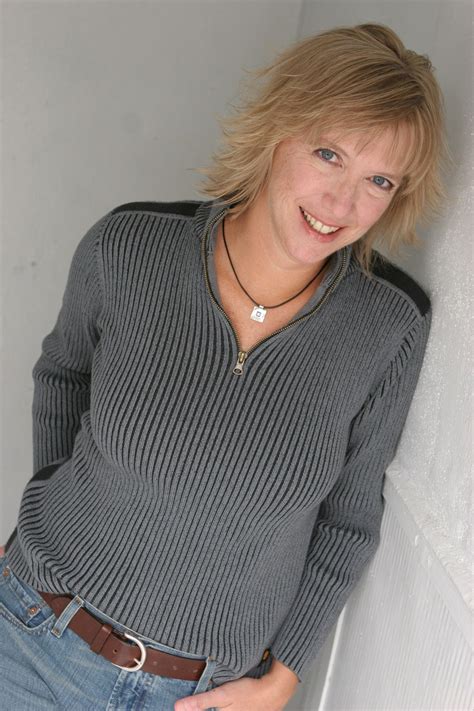A Quote by Daniel Clowes
Even if I only had 10 readers, I'd rather do the book for them than for a million readers online.
Related Quotes
A reader is entitled to believe what he or she believes is consonant with the facts of the book. It is not unusual that readers take away something that is spiritually at variance from what I myself experienced. That's not to say readers make up the book they want. We all have to agree on the facts. But readers bring their histories and all sets of longings. A book will pluck the strings of those longings differently among different readers.
Some readers sort of suspect that you have another book that you didn't publish that has even more information in it. I think that readers sort of want to be taught something. They have this idea that there's a takeaway from a novel rather than just the being there, which I think is the great, great pleasure of reading.
Books are just dead words on paper and it is the readers who bring the stories alive. Previously, writers wrote a book and sent it out into the world. A couple of months after publication letters from readers might arrive. And, leaving aside the professional reviews, it is really the reader's opinions that the writer needs. They vote for a book - and a writer - with their hard earned cash every time they go into a bookstore (or online - that's my age showing!) and buy a book.
The ear is the only true writer and the only true reader. I know people who read without hearing the sentence sounds and they were the fastest readers. Eye readers we call them. They get the meaning by glances. But they are bad readers because they miss the best part of what a good writer puts into his work.
I love the fact that so many of my readers are intelligent, exceptional, accomplished people with an open-minded love of diversity. But even more than that, I love it when my readers find lasting friendship with others of my readers - knowing that they met through their mutual affection for my books and characters makes me happy!
When I get about five readers I can rub together in one genre, I leave that genre and go somewhere else. And this is due to a vow that I made myself when I started writing - that if I had any success at all, I would not be bound to one form of writing. That I would write what moves me. The only way I can see me surviving and doing more than one book is to present the readers with a Dan Simmons novel, with whatever tropes and protocols from whatever genre I want to borrow them. If that builds a Dan Simmons readership, well then, okay. Otherwise, forget about it. I'd rather drive a truck.
Comic book readers are just as abandoned by the corporate system as the creators, despite the importance supposedly given their hard-earned dollars. The average comics shop can offer only a tiny fraction of an industrywide selection that is itself extremely limited in scope. And even when readers know exactly what they want, the search can be maddeningly futile.
Without the book business it would be difficult or impossible for true books to find their true readers and without that solitary (and potentially subversive) alone with a book the whole razzmatazz of prizes, banquets, television spectaculars, bestseller lists, even literature courses, editors and authors, are all worthless. Unless a book finds lovers among those solitary readers, it will not live . . . or live for long.
I'm a fan of meeting readers face to face, at reader events, where we're able to sit down and take some time to talk. Too often, at regular book signings, I meet readers who have traveled six or eight hours to see me, and I'm unable to spend more than a few short minutes chatting with them as I sign books.






































